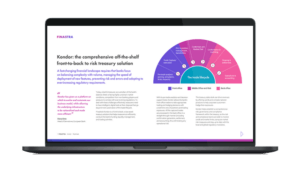FCA publishes guidelines about Brexit
The FCA provides more details about the Temporary Permissions Regime (TPR).

The UK Financial Conduct Authority (FCA) has earlier this morning updated a webpage called Preparing your firm for Brexit, in an effort to help the firms it regulates check whether they are ready for various scenarios associated with the UK’s exit from the European Union.
The regulator provided more details on the so-called Temporary Permissions Regime (TPR), a key safeguard it has been working on. It is set to allow EEA firms and funds using a UK passport to continue to operate, without needing to apply for authorisation at this stage. At the end of last year, HMT announced that they would legislate to enable this if necessary.
The TPR will allow for business as usual for EEA firms and funds passporting into the UK. As at April this year, more than 8,500 financial services firms were registered as passporting into the UK, and nearly 6,000 out of the UK. Those that receive a temporary permission will be able to enter into new business and fulfill existing contracts with UK customers for a defined period after exit day, while seeking full authorisation.
The FCA will be issuing more communications on what firms will need to do in order to register for temporary permission, and the regulator will be consulting on the related rules.
Once they have temporary permission, firms will be given a period of time, or ‘landing slot’, within which they will need to submit their authorisation application. The regulator will confirm landing slots to firms in due course so they can prepare their applications. The FCA expects the first of these slots to be later in 2019, with the last timed towards the end of the temporary permissions period.
However, there is no reciprocal ‘TPR’ arrangement from the EU. And the challenges this presents, in terms of lack of commercial certainty, and business disruption, is clear.
There are ways firms can access the EEA which may not be affected by Brexit, although these will depend on the specific firm, type of activity and the exemption or local permission in question. These include:
Permission under local law or based on rules of a local financial market infrastructure.
Local exemptions in an individual EU country. An example of this is ‘reverse solicitation’, where the client initiates the provision of the service on their own initiative, and you do not promote or advertise services.
The FCA continues to prepare for a range of scenarios. This includes if the UK leaves the EU on March 29, 2019 without a withdrawal agreement and without the UK Government and the EU having ratified an implementation period.
The FCA will amend and maintain EU binding technical standards, which are detailed EU rules. These rules sit underneath EU regulations and directives and give the technical detail of how firms should meet these requirements. The regulator will also be amending its Handbook to ensure it is consistent with changes the Government is making to EU law and so it still works effectively when the UK leaves the EU.
The FCA plans to consult on these changes in Autumn 2018, depending on the Treasury’s timelines for secondary legislation under the EU Withdrawal Act.









